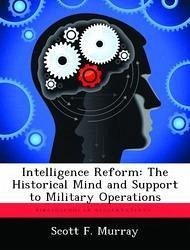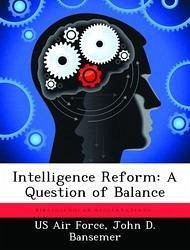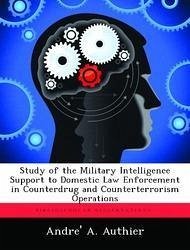Nicht lieferbar

Intelligence Reform: The Historical Mind and Support to Military Operations
Versandkostenfrei!
Nicht lieferbar
The use of history as a primary mode of inquiry for thinking about policy problems cannot be underestimated. Any policy reform devoid of 'historical-mindedness' risks failure. Brought abruptly to the forefront after the terrorist attacks against the United States on September 11, 2001, the debate surrounding intelligence reform continues unabated in national security and academic circles. This monograph examines the Intelligence Reform and Terrorism Prevention Act (IRTPA) of 2004 and asks the question, "Do the IRTPA reforms go deep enough and do they address critical issues with regard to inte...
The use of history as a primary mode of inquiry for thinking about policy problems cannot be underestimated. Any policy reform devoid of 'historical-mindedness' risks failure. Brought abruptly to the forefront after the terrorist attacks against the United States on September 11, 2001, the debate surrounding intelligence reform continues unabated in national security and academic circles. This monograph examines the Intelligence Reform and Terrorism Prevention Act (IRTPA) of 2004 and asks the question, "Do the IRTPA reforms go deep enough and do they address critical issues with regard to intelligence support to military operations at the strategic, operational and tactical levels of war?" Contemporary concerns about military intelligence reform are best discerned by examining historical examples of past military operations. Future military intelligence reform efforts must begin with a historical mind. Three historical vignettes serve as the analytical foundation for this research monograph: Gallipoli Campaign (1915), Tet Offensive (1968) and Operation ALLIED FORCE (1999). This monograph provides the reader with a heightened appreciation of the importance of a historical mind to their policy deliberations, makes recommendations for future military intelligence reform efforts and proposes possible modifications to the IRTPA in the near future.









